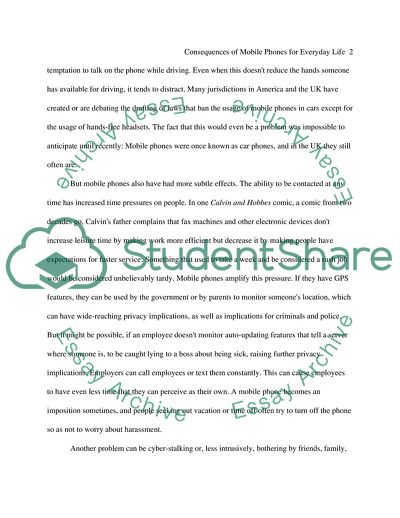Cite this document
(Consequences of Mobile Phones for Everyday Life Assignment - 1, n.d.)
Consequences of Mobile Phones for Everyday Life Assignment - 1. https://studentshare.org/sociology/1749353-analyse-some-of-the-consequences-that-mobile-phones-have-for-everyday-life
Consequences of Mobile Phones for Everyday Life Assignment - 1. https://studentshare.org/sociology/1749353-analyse-some-of-the-consequences-that-mobile-phones-have-for-everyday-life
(Consequences of Mobile Phones for Everyday Life Assignment - 1)
Consequences of Mobile Phones for Everyday Life Assignment - 1. https://studentshare.org/sociology/1749353-analyse-some-of-the-consequences-that-mobile-phones-have-for-everyday-life.
Consequences of Mobile Phones for Everyday Life Assignment - 1. https://studentshare.org/sociology/1749353-analyse-some-of-the-consequences-that-mobile-phones-have-for-everyday-life.
“Consequences of Mobile Phones for Everyday Life Assignment - 1”. https://studentshare.org/sociology/1749353-analyse-some-of-the-consequences-that-mobile-phones-have-for-everyday-life.


